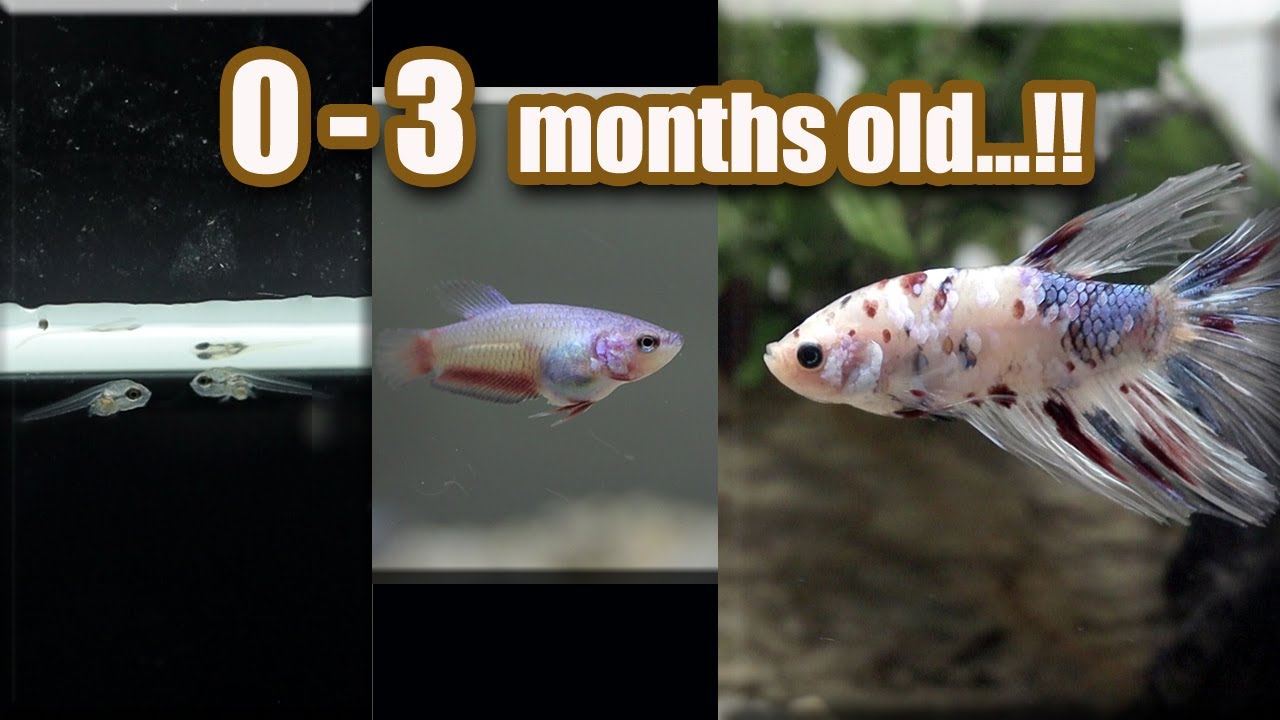Bruce Abshire is a seasoned educator in the field of biology, with a particular passion for betta fish. His knack for breaking down intricate scientific concepts into easily understandable content makes his articles a favorite among the readers of Betta Fisher.
Understanding your betta fish's age is crucial as it significantly influences how you care for it. Age affects diet, behavior, and even the type of environment your betta fish thrives in.
So, how can you determine a betta fish's age? While there's no exact science, there are clues in their physical characteristics and behavior. This guide will delve into these indicators, and explain why it's beneficial to ask the breeder or pet store about your betta fish's age.
Whether you're differentiating between a young and old betta fish, or you're simply curious about betta age, this guide is here to help. Let's dive in and explore the fascinating world of betta fish aging!
Spotting the Signs of Age: Physical Clues in Your Betta Fish 🐠
When you're trying to estimate your betta fish's age, physical traits can offer some useful hints. For example, size is a good indicator. Young bettas are usually smaller, growing larger as they mature, and reach their full size around a year old.
Color vibrancy is another significant clue to a betta fish's age. Young bettas are typically more vibrant and colorful, while older bettas may start to lose some of their color intensity. However, this isn't a strict rule, as some bettas maintain their color well into old age, like the purple betta fish.
Lastly, let's consider fin condition. A young betta's fins will be smooth and intact, while an older betta may show signs of fin deterioration or damage. This could be due to age or disease, so it's crucial to monitor your betta's fins regularly.
Remember, these are just hints and not definitive ways to determine your betta fish's age. But by observing these physical traits, you can get a rough estimate of your betta's age and provide them with the appropriate care.

Decoding Betta Behavior: What Their Actions Tell About Their Age 🐟
Just like humans, betta fish also experience changes in their behavior as they age. This is a key factor in determining the age of your betta fish. Have you noticed your betta fish becoming less active? As bettas age, they often become less active. This could be a sign that your betta fish is entering its golden years.
Changes in eating habits can also indicate an older betta fish. Young bettas are typically eager eaters. However, as they age, bettas may start to eat less. Monitoring these changes is important as they can provide clues about how old your betta fish is.
Remember, these behavioral changes could also indicate health issues. It's always best to consult with a vet or a fish expert if you notice drastic changes. After all, understanding your betta's age and behavior helps you provide better care and strengthens your bond with your finned friend.
Dig Deeper: Ask Your Betta's First Home About Their Age 🏠
If you're unsure about your betta fish's age, you can always ask the breeder or pet store where you purchased it. They usually have accurate records and can provide this information. Remember, knowing your betta fish's age isn't just satisfying curiosity - it's about providing optimal care for your aquatic friend at each stage of its life. Check out our comprehensive guide to understand how to enhance your Betta's lifespan.
Is your betta fish still a lively youngster, full of energy and color, or is it an older, calmer creature, with years of life experience in its tank? Determining your betta fish's age can be a bit tricky, but with these tips, you're on the right path to becoming an expert. Dive into the world of wild betta fish to learn more about their behavior and lifespan.
Whether you're observing physical changes, noting shifts in behavior, or consulting professionals, you're taking steps to understand your betta better. Remember, no matter how old your betta fish is, every day is an opportunity to improve their life. Explore our step-by-step guide for setting up your betta fish tank to ensure a healthy habitat. Happy betta fish keeping!















